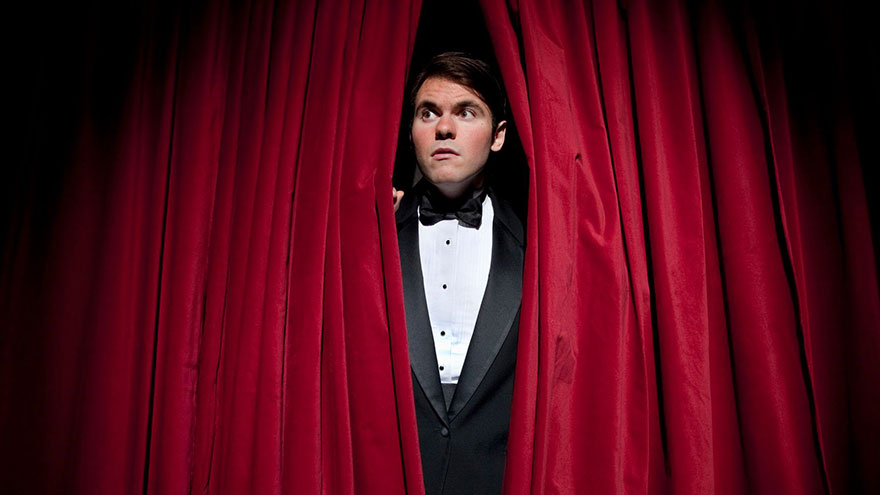Stage Fright Phobia
The “stage fright phobia,” or more simply “stage fright,” is the fear of being in certain places or in certain situations, such as on stage, in front of people.
The technical term for this fear is “topophobia” and understanding it and your own fear responses are the first steps in overcoming its effects.

Symptoms
You may experience nervousness, including shaky hands and sweaty palms. The symptoms experienced with stage fright are the manifestation of the fear response and can vary with each individual. Racing heart/increased pulse, nausea, dry mouth, racing thoughts or “blank” mind, sweating excessively, sweaty palms or a tight throat can all be symptoms of stage fright.
Effects
You may fear you’ll forget the words you rehearsed. Stage fright can cause a sense of forgetfulness, thus making it more difficult to perform or give a prepared speech. The increased firing of nerves can affect the limbs and facial muscles, causing shaky hands that rustle papers or trembling lips that can trip over words.
Those who do not understand and have control of stage fright can be so uncomfortable with thse effects and embarrassed at their emergence in front of others that they may be unable to speak well or even at all.
Theories/Speculation
The body is releasing adrenaline during stage fright, heightening the nervous system. One of the most widely accepted theories of why stage fright occurs is the “fight or flight” response. An individual sees performing or public speaking as a stressful and potentially harmful (emotionally and mentally) situation, so the body responds by preparing it for action.
Adrenaline, a chemical in the brain, is released when people are in stressful situations or are under attack. The performer is experiencing the effects of adrenaline on the body when he or she is experiencing stage fright.
Misconceptions
Controlled stage fright can help give a performance energy and excitement. A common notion is that top or regular performers do not experience stage fright. This is not true; many performers, public speakers and others who are required to talk in front of groups experience the same symptoms of stage fright.
These individuals have simply learned to understand, control and work with their stage fright rather than being held up by it. Another misconception is that stage fright is a bad thing. The adrenaline rush can actually greatly benefit a performance by giving the performer a good deal of energy, so long as he or she feels in control.
Prevention/Solution
Picture yourself succeeding and give yourself positive feedback to thwart stage fright. The keys to making stage fright work for rather than against you are understanding and control. Knowing what your normal fear response is and why it is happening will help you to know that stage fright does not have to ruin your performance or speech.
Take control of the situation by being well prepared with your piece. Plan out the time before your performance so you are not in a rush but so that you don’t have too much idle time. Breathe deeply. Visualize success. Train yourself to think positively. The physiological response of your body is the same when you are nervous as when you are excited, the only difference is your thought patterns.
You Might Also Like :: Inderal for Stage Fright and Anxiety

